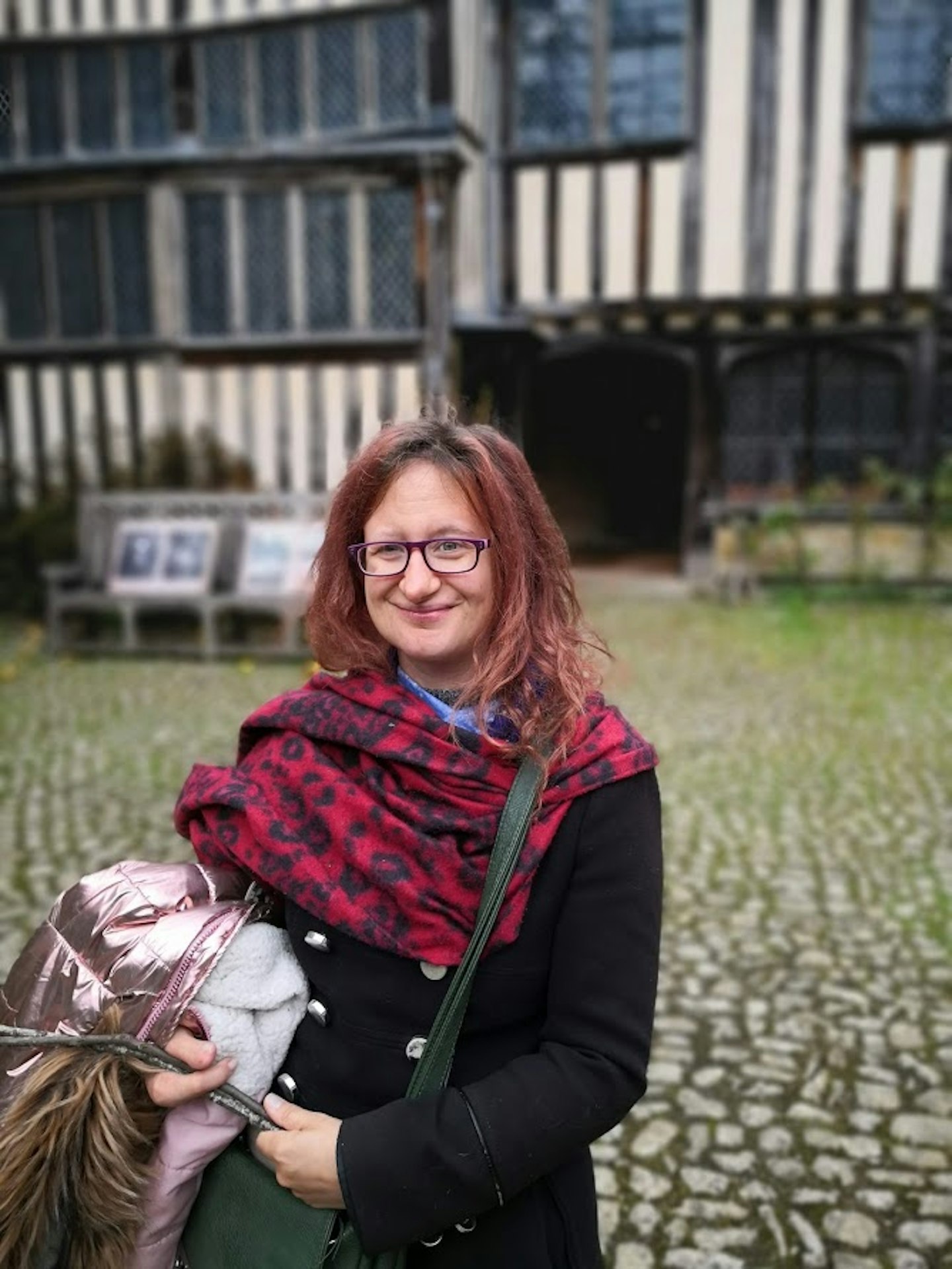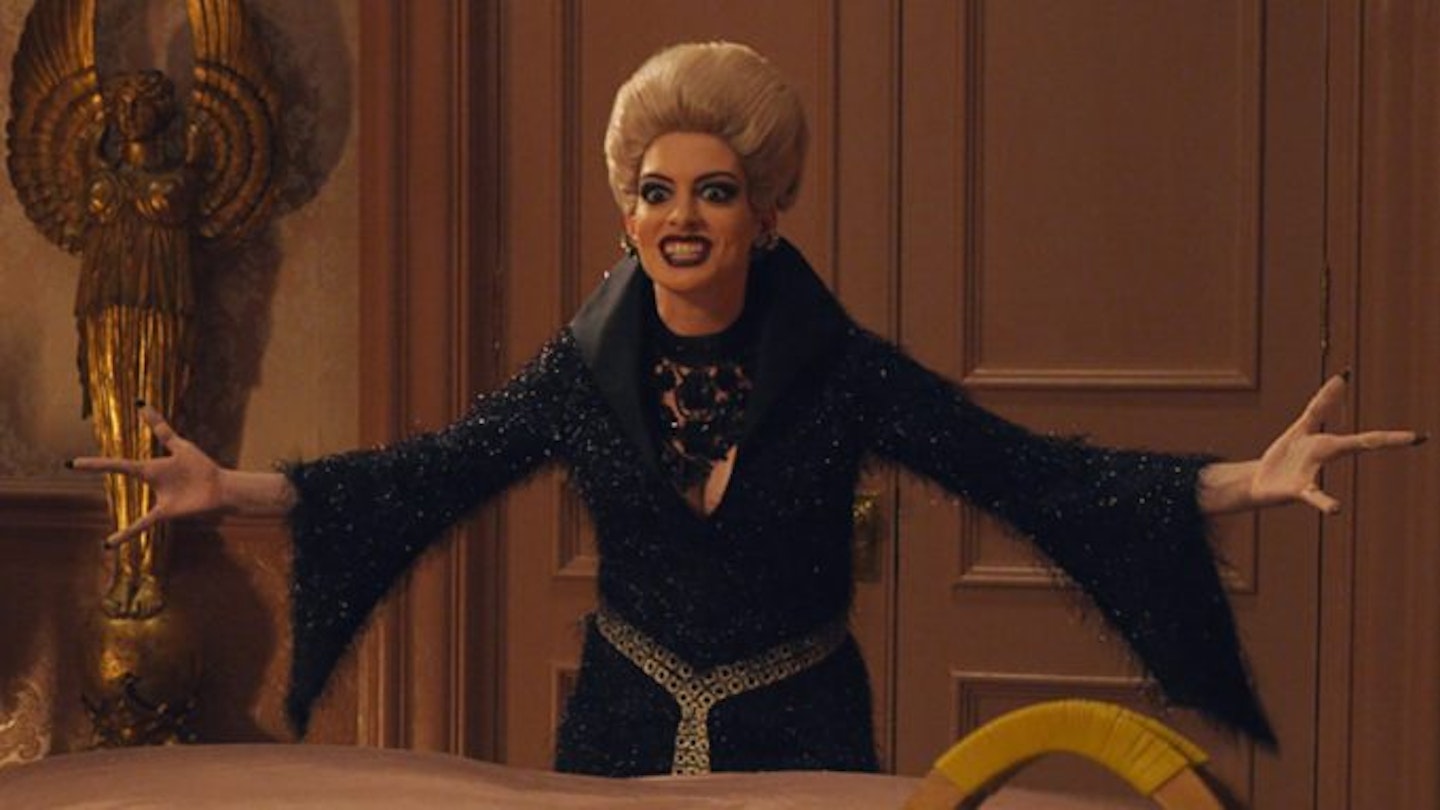I am shaking as I type these words. I am devastated. I am incensed. I am angry. I have never felt so hurt and humiliated by a film before, and I never expected to.
The latest remake of Roald Dahl’s The Witches has attracted a myriad of criticism from the disability community and for me it’s highly personal. In the new adaptation of Roald Dahl's 1983 book starring Anne Hathaway, the witches have three elongated fingers on each hand and toe-less feet.
I don’t know what is worse: the fact that such an offensive and out-dated portrayal of disability was ever allowed to make it onto the big screen, the patronising apology by Warner Bros or the mocking comments on social media, posting offensive memes and accusing the disabled community of being ‘over-sensitive’.
I was born with an extremely rare congenital condition known as Goltz Syndrome characterised by limb deformities, sight loss and facial asymmetry.

My right hand in particular, is very similar to the witches' hands in the film. I also have no sight in one eye and I wear an artificial limb. Much of my childhood years were spent undergoing major, extensive surgeries and I was often in immense pain from necessary but excruciating treatments such as leg-lengthening procedures that involved the use of pins and rods to pull bones apart and later, lower-limb amputations.
Growing up with a physical disability, I’ve developed rather a quirky sense of humour. Friends and family know I’m not exactly sensitive. On the contrary, I’m open about my disabilities and often joke about my leg ‘falling off’ on fairground rides or while horse riding and I’m always happy to answer questions. My seven-year-old daughter is well used to me taking my leg off at night and putting my cosmetic eye in a box. We like to pretend it’s ‘keeping an eye’ on her at night.
But there’s another side to living with disability. The side where you have no control over how people react to you. The side where you are always on show, no matter where you are or what you’re doing.
In one fell swoop, The Witches have undermined decades of progress. Disability and limb impairment have once again been positioned as ‘evil’ or ‘scary’.
I spend every single day of my life dealing with rude stares and horrified glances from members of the public. I remember being aware of people noticing my disability when I was just three. ‘They’re staring at me again, Mummy,’ I used to say.
Sometimes I’m aware of being watched when I’m eating at a restaurant with my partner and daughter. People like to ‘observe’ how I use cutlery and are quite unsubtle about it. I usually try to ignore them but my face always burns.
You never get used to the stares, but it’s taken me my entire life to come to terms that it will always feel like this. People will always notice difference – that’s just life.
Still, I was starting to feel encouraged by huge progress towards positive disability representation in the media thanks to amazing actors, actresses and media personalities of which there are now quite a lot in number: Cerrie Burnell, Liz Carr, Briony May Williams, Genevieve Barr, Mat Fraser and so on. At least, I was.
In one fell swoop, The Witches have undermined decades of progress. Disability and limb impairment have once again been positioned as ‘evil’ or ‘scary’. Kids will play games about it in the playground, hiding their arms in their jumpers, twisting their hands about and shrieking with delight.
And all this is so unnecessary: there is no mention of limb impairment in Roald Dahl’s original book, so why has it been interpreted like this? Using impairment as a tool to scare people is lazy, outdated and derogatory. I find it incredible that at no point during the making of this blockbuster no one appears to have questioned this offensive portrayal. Maybe they did, but they went ahead anyway.
It’s why I don’t accept the Warner Bros ‘apology’ released this week and the so-called heartfelt statement from Anne Hathaway. Too little too late, girlfriend.
And to anyone who says ‘It’s just harmless fun! You can’t do anything these days without offending someone’ – No, I don’t agree, so f*** you. It’s not harmless fun, it’s damaging and for people like me, it’s highly personal.
